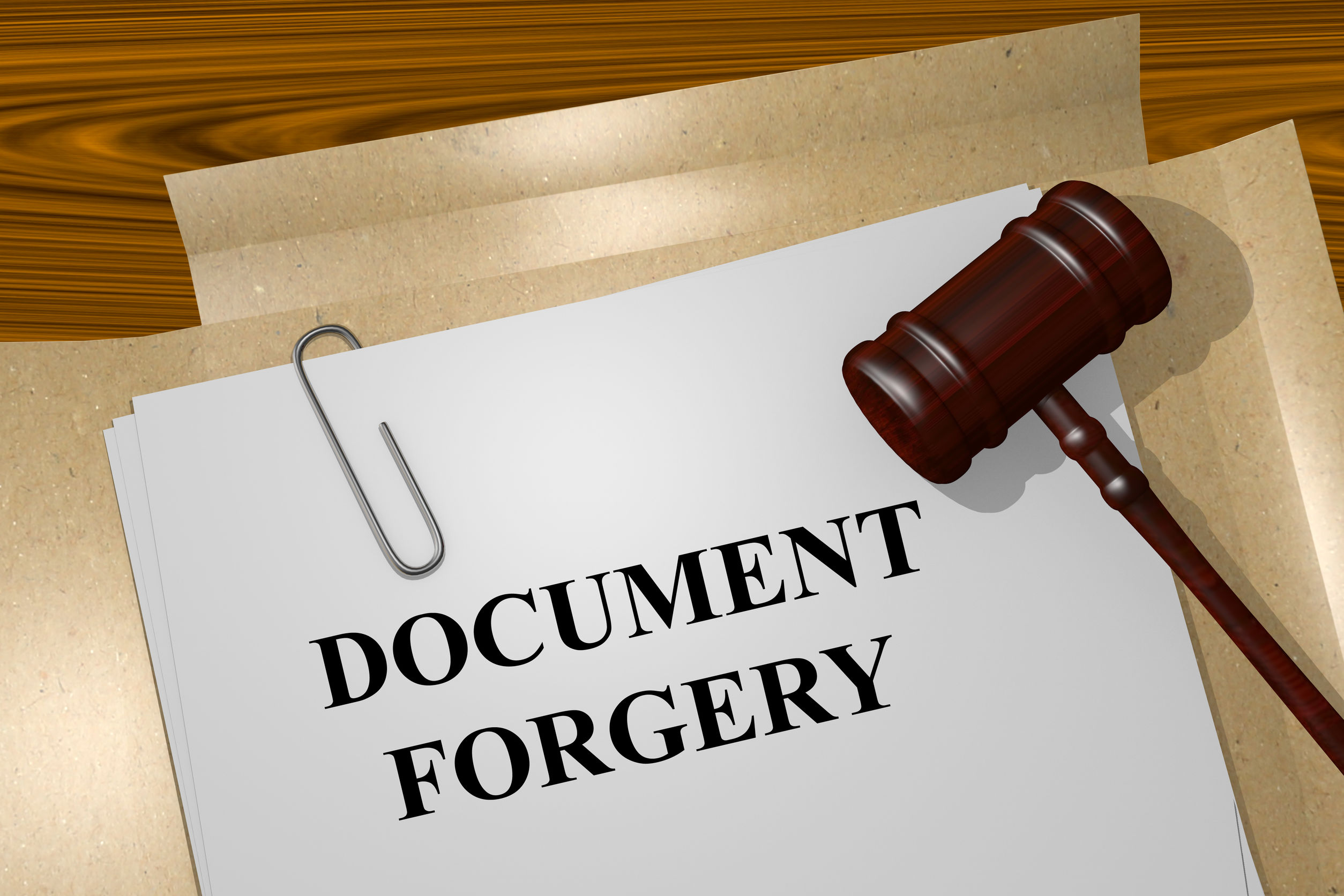Forgery is the act of altering or creating written documents and other objects with the intent to deceive others. The most common examples of forgery include forging academic records or faking a check. In Colorado, it is a crime to possess forged documents if you have prior knowledge that it was forged with the intent to trick others.
Depending on the degree of the offense, forgery can be either a felony or a misdemeanor.
Forgery as a Felony
Under Colorado law, it is a serious crime to forge written documents or objects, including:
- Stocks or bonds
- Contracts, deeds, wills, or other legal documents
- Money, stamps, or government securities
- Lottery tickets
- Public records
- Identification documents
- Tokens or tickets
Forging these items is a serious crime that is classified as a felony with up to a three-year sentence as punishment. If you are in possession of forged financial or legal documents you are committing a Class 6 felony that will land you 12 to 18 months in prison. Offenders must also pay a fine, amounting to as little as $1000 or as much as $100,000.
One classic example of a forgery classified as a felony is the criminal possession of a forged instrument. It is a Class 6 felony if an individual possesses bonds, stamps, checks, contracts, public records, deeds, wills, and whatnots, with the intent to defraud. Moreover, it is also a Class 6 felony is an individual knowingly possesses a piece of equipment that is designed to create forged items.
As a convicted felon, you will no longer be allowed to purchase or carry a firearm. The circumstances surrounding your case will help the court decide whether or not you will also be restricted from practicing your profession.
Forgery as a Misdemeanor
In Colorado, misdemeanors are categorized into three classes, with Class 3 being the lowest level of misdemeanor and Class 1 the most serious.
An example of a Class 1 misdemeanor is forging academic records to be employed, admitted to higher education, or eligible for scholarships. The Colorado Revised Statute § 18-5-104 provides that second-degree forgery is also considered a misdemeanor. An example of a second-degree forgery is when an individual intends to defraud by making, using, or changing any written instrument that is not included in the other forgery statutes.
Whether as a felony or a misdemeanor, a forgery conviction can significantly impact your life. Luckily, forgery is a bailable offense in the state of Colorado. Contacting a 24 hour bail bonds agency in Greeley CO will secure bail bond services whenever you need it.
Call Lucky Lucero’s Bail Bonds today to learn more about the details of your forgery case and obtain professional bail bond services immediately.

